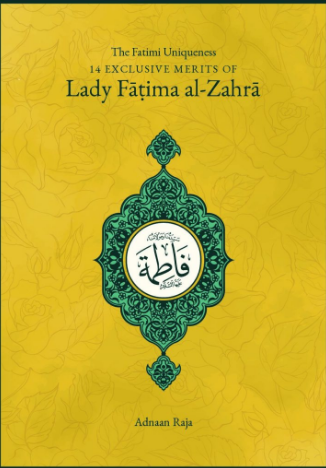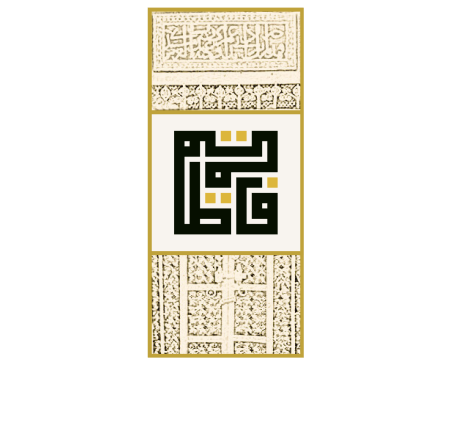The khaṣāʾiṣ(s. khaṣīṣa) is a major branch of sira studies and entails a detailed investigation of the unique merits, qualities, and virtues of the Messenger of Allah ﷺ which no-one else shares with him. Inspired by this tradition, we compiled the unique qualities of Lady Fāṭima al-Zahrāʾ, for just as studying the Prophet’s khaṣāʾiṣ enriches our relationship with him, exploring the khaṣāʾiṣ of his beloved daughter will, Allah willing, deepen our connection to her.
1. Superior to all women of this nation
Lady ʿĀʾisha relates that the Prophet of Allah ﷺ said to Lady Fāṭima (peace be upon her): “Are you not pleased that you are the leader of all believing women or [he said] leader of the women of this nation?”
2. Superior and leader of the women of Paradise
The Prophet ﷺ said to Sayyidunā Hudhayfa: “Before this night, this angel has never descended to earth. He sought permission from his Lord to ˹descend and˺ convey greetings to me and give me the good news that Fāṭima is the leader of the women of Paradise.”
3. The first to pass away after the Prophet ﷺ and join him in the Hereafter
The Prophet ﷺ said to Lady Fāṭima: “You will be the first person from my family to join me.”3
4. She is a part of the Prophet ﷺ
The Prophet ﷺ said: “Fāṭima is a part of me. Whoever angers her angers me.”4
5. The blood lineage of the Prophet ﷺ continues only through her
The lineages through the other daughters of the Prophet ﷺ eventually expired. Only the line of Lady Fāṭima continues and will continue till the Last Day.
6. Her happiness is the Prophet’s happiness, and her unhappiness is the Prophet’s unhappiness
The Prophet ﷺ said: “Fāṭima is an integral part of me. Whatever delights her, it delights me. Whatever upsets her, it upsets me.”5
7. She resembled the Prophet ﷺ more than anyone else
Lady ʿĀʾisha said: “I have not seen anyone who resembled the Prophet (peace and blessings upon him) more in behavior, habits, character, and in sitting and standing than Fāṭima.”6
8. She was more truthful in her speech than anyone else
Lady ʿĀʾisha said: “I did not see anyone more truthful than Fāṭima, apart from her father.”7
9. The Mahdī will be from her descendants
The Prophet said: “The Mahdī is from my offspring, from the children of Fāṭima.”8
10. It was unlawful for her husband, our master ʿAlī b. Abī Ṭālib, to take a second wife while she was alive
When Sayyiduna Ali intended to take Abu Jahl’s daughter as a second wife, the Prophet said: “By Allah! The daughter of Allah’s Messenger and the daughter of Allah’s enemy cannot be with the same man.”9
11. The first person to defend his honour
ʿAbd Allah b. Masʿūd said: “While Allah’s Messenger (peace and blessings upon him) was praying next to the Kaʿba, there was a group of the Quraysh sitting there in a gathering. One of them said, ‘Do you see this? Who among you can fetch the dung, blood, and entrails of the slaughtered camels belonging to the family of so-and-so? Then wait till he prostrates and put that in between his shoulders?’ The most unfortunate among them (ʿUqba b. Abī Muʿayt) went ˹and fetched them˺. When Allah’s Messenger prostrated, he put them between his shoulders. The Prophet remained in prostration while they laughed so much so that they fell on each other. A passer-by went to ˹inform˺ Fāṭima, who was a young girl at the time. She came running, and the Prophet was still in prostration. She removed the entrails and turned to the Quraysh cursing them. When Allah’s Messenger completed his prayer, he supplicated, ‘Dear Allah! Take revenge against Quraysh.’ He said this thrice and added, ‘Dear Allah! take revenge from ʿAmr b. Hishām, ʿUtba b. Rabīʿa, Shayba b. Rabīʿa, al-Walīd b. ʿUtba, Umayya b. Khalaf, ʿUqba b. Abī Muʿayt, and ʿUmar b. al-Walīd.'”
ʿAbd Allah added, “By Allah! I saw all of them dead on the battlefield on the day of Badr. They were dragged and thrown in the Qalīb ˹well˺ at Badr. Allah’s Messenger then said, ‘Allah’s curse has descended upon the people of the Qalīb.'”10
12. The only daughter of the Prophet ﷺ to accompany and support him in battle
She was one of the fourteen women who took part in the Expedition of Uhud, where she tended to the wounded.11
When the Messenger of Allah was wounded in the Expedition of Uhud, “Fāṭima, the daughter of Allah’s Messenger ﷺ, would wash the wound while Ali poured water ˹over it˺ using a shield. When Fāṭima saw that the bleeding increased because of the water, she took a piece of a palm mat, burnt it, and rubbed the ˹ashes˺ into the wound, after which the bleeding stopped.”12
13. She was protected against hunger
It is reported by Imran b. Ḥusayn: “The Prophet ﷺ placed his hand on below the neck of Fāṭima – where the necklace is placed – and prayed: ‘O You who satiates hunger, fulfils needs, and raises ranks! Do not let Fāṭima bint Muhammad be hungry.’ Later, I asked her about it. She replied: ‘Since then, I have never been hungry.'”13
14. The first to be carried on a solid bier
Lady Fāṭima informed Asmāʾ that she did not like how deceased women are carried on a bier made of malleable palm leaves because it reveals the body’s contours. Upon hearing, Asmāʾ prepared a solid bier for Lady Fāṭima, to which she replied: “How beautiful this is. The body of a man and woman cannot be distinguished from.” Asmāʾ adds that Lady Fāṭima smiled after seeing the solid bier and remarked that this was the first time she smiled since the passing on of her father, Sayyidunā Muhammad ﷺ.14
May Allah Almighty accept this, and may it be accepted in the court of Lady Fāṭima. May we be blessed with love for; a love that permeates our hearts and thoughts.
Praise be to Allah in the beginning and the end. May Prayers and salutations be upon our Master Muhammad, his family, and companions. And may special greetings and peace be showered on the Lady of Paradise, the cynosure of the Prophet’s admiration, the mother of Ḥasan and Ḥusayn, Fāṭima the Pure and Innocent.
References
[1] Agreed upon.
[2] Al-Tirmidhī: 3781. He graded it as good.
[3] Agreed upon.
[4] Agreed upon. The wording above is that of al-Bukhārī.
[5] Al-Ḥākim: 3/168. Al-Dhahabī verified it as authentic.
[6] Abu Dawud: 5219
[7] Al-Ḥākim: 4765. Al-Dhahabī verified it as authentic.
[8] Abū Dāwūd: 4286.
[9] Agreed upon.
[10] Al-Bukhārī.
[11] Al-Wāqidi in al-Maghāzī.
[12] Agreed upon. The wording above is of al-Bukhārī: 3847.
[13] Al-Bayhaqī and others.
[14] Paraphrased from al-Ḥākim: 4763 and al-Bayhaqī: 7180.


